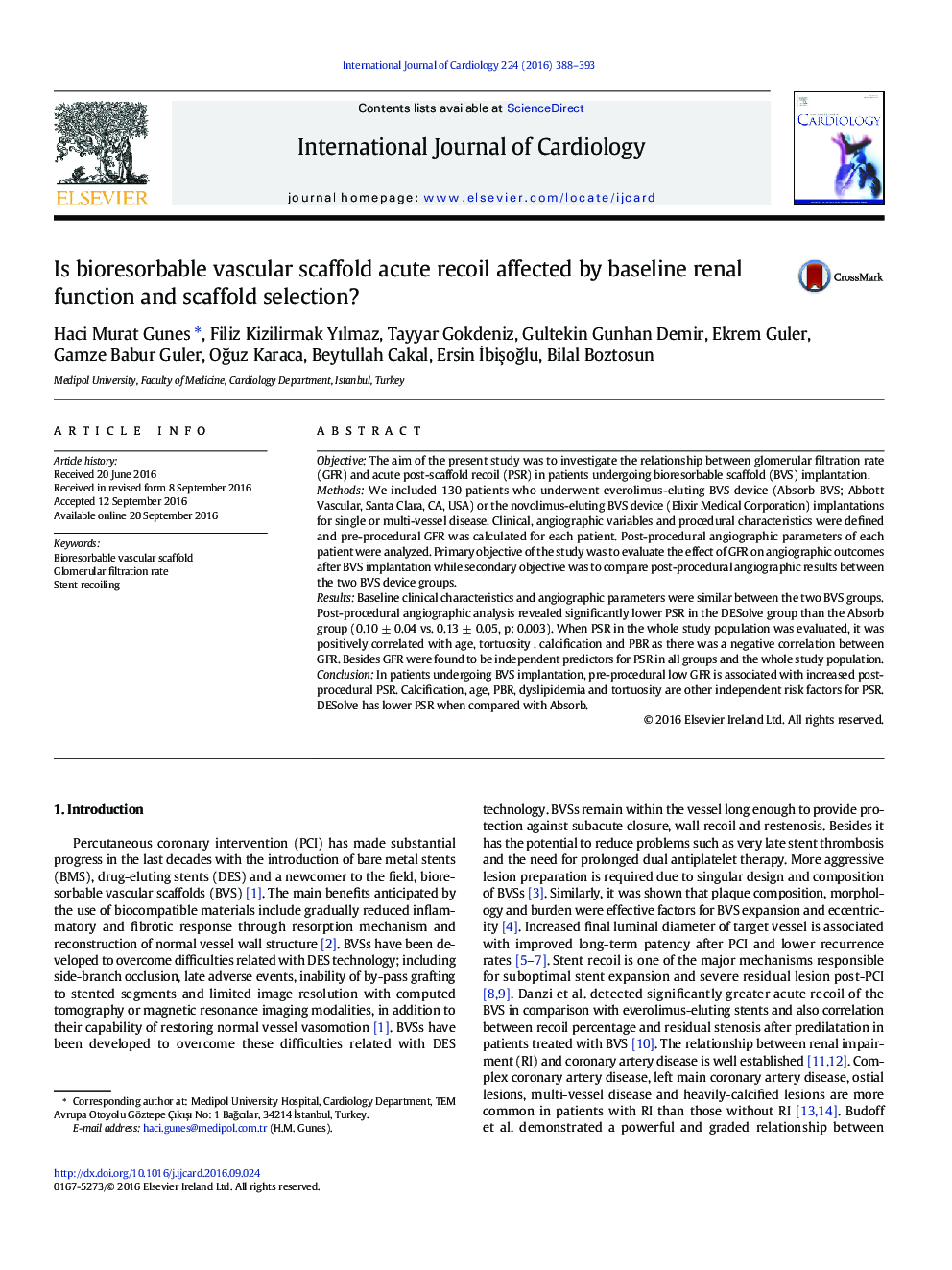| Article ID | Journal | Published Year | Pages | File Type |
|---|---|---|---|---|
| 5962454 | International Journal of Cardiology | 2016 | 6 Pages |
ObjectiveThe aim of the present study was to investigate the relationship between glomerular filtration rate (GFR) and acute post-scaffold recoil (PSR) in patients undergoing bioresorbable scaffold (BVS) implantation.MethodsWe included 130 patients who underwent everolimus-eluting BVS device (Absorb BVS; Abbott Vascular, Santa Clara, CA, USA) or the novolimus-eluting BVS device (Elixir Medical Corporation) implantations for single or multi-vessel disease. Clinical, angiographic variables and procedural characteristics were defined and pre-procedural GFR was calculated for each patient. Post-procedural angiographic parameters of each patient were analyzed. Primary objective of the study was to evaluate the effect of GFR on angiographic outcomes after BVS implantation while secondary objective was to compare post-procedural angiographic results between the two BVS device groups.ResultsBaseline clinical characteristics and angiographic parameters were similar between the two BVS groups. Post-procedural angiographic analysis revealed significantly lower PSR in the DESolve group than the Absorb group (0.10 ± 0.04 vs. 0.13 ± 0.05, p: 0.003). When PSR in the whole study population was evaluated, it was positively correlated with age, tortuosity , calcification and PBR as there was a negative correlation between GFR. Besides GFR were found to be independent predictors for PSR in all groups and the whole study population.ConclusionIn patients undergoing BVS implantation, pre-procedural low GFR is associated with increased post-procedural PSR. Calcification, age, PBR, dyslipidemia and tortuosity are other independent risk factors for PSR. DESolve has lower PSR when compared with Absorb.
